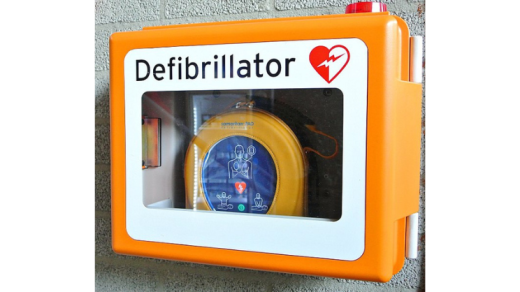First digital GCSE to launch in 2025

The UK’s first major high-stakes qualification set to be fully assessed on screen is Oxford, Cambridge and the Royal Society of Arts’ (OCR) GCSE in computer science.
Students starting their GCSEs in 2025 can sit digital rather than paper-based exams as they demonstrate their coding abilities and grasp of computing concepts.
OCR said the move will allow for more authentic assessment of students programming skills and knowledge.
Computer science is rapidly growing in popularity, with 88,530 students taking the GCSE in 2023, a 12 percent year-on-year increase.
‘Digital native’ students are fascinated by emerging technologies like generative artificial intelligence (AI) and tech career opportunities including in gaming, data science and 3D modelling.
Paper-based and online options
Schools will retain the option of paper-based assessment for the OCR qualification, if they prefer that approach or do not have the digital infrastructure in place.
OCR is calling for more support for schools to implement adequate digital infrastructure, as on-screen exams become an option. The exam board said it is investing in new training, support and guidance for teachers to facilitate digital exams and classroom preparation.
The digitally assessed GCSE is subject to regulatory approval by Ofqual.
Mock exams pilot success
The news of the first fully on-screen GCSE assessment follows a successful pilot of digital mock exams, where students received rapid results and feedback.
In England, students have been taking digital mocks in OCR’s GCSE computer science for a year, with GCSE English mocks added this month. Outside the UK, Cambridge International is offering on-screen mocks for IGCSE (International General Certificate of Secondary Education) and A-level science subjects, with several other subjects launching in 2024.
Authentic experience
Jill Duffy, chief executive of OCR, said:“Digital assessment brings a more authentic experience for students of our GCSE in Computer Science. Students want to sit their exams in the way that they learn. Digital exams are far closer to real industry and further study experiences.
“We’re talking to students and teachers right now to make this work. It’s striking how readily students and teachers have taken to digital mock exams. Our pilots show that digital exams are quicker, more suited to how students learn, more sustainable and great learning tools. Digital assessment is not a hypothetical future, it’s happening now.
“A combination of human expertise and digital technology will allow us to improve quality and integrity throughout the system.
“Other subjects will follow computer science. Our pilot mock exams show that students appreciate being able to type rather than handwrite their answers, seeing wordcounts and timers as they progress. It brings greater clarity to the marking process.
“Our pilot has shown that digital exams work. Now we have to move at pace to ensure every student can benefit from the opportunities of digital assessment.”
Computer scientist Professor Simon Peyton Jones, engineering fellow at Epic Games, creators of video game Fortnite, said: “It’s no surprise that so many young people want to study and work in computing.
“From generative AI to gaming, there is a vast range of fulfilling opportunities. Digital assessment makes particular sense for computer science: it brings assessment closer to the real world, and will allow young people to demonstrate their capabilities more authentically.
“So I am delighted that OCR is grasping this opportunity, by offering a digital examination option to their GCSE in computer science.”
Julia Adamson MBE, managing director (education and public benefit) at BCS, The Chartered Institute for IT, said: “We welcome the digital examination format as an innovation that improves access and is closer to the reality of the work environment.
“In a rapidly changing tech landscape digital skills are vital as they provide the tools required to take an active part in society, support career prospects and help drive the economy. This approach to exams helps provide that authentic experience and gives young people the opportunity to put their skills into practice”.
Digital readiness
OCR GCSE computer science students will get to work in an Integrated Development Environment (IDE), which allows for the students’ digital coding to take place and be assessed accurately.
OCR focus groups with about 100 teachers in the autumn found wide support for that IDE.
Eight out of ten teachers felt their school or college would be ready to deliver digital assessments within one or two years.
OCR chief executive, Jill Duffy, said: “Schools and teachers need support right now so that every student can benefit from world-class digital infrastructure. That means investment, training and guidance to realise this enormous opportunity to build a fairer system.”
Digital exams pilot
A major pilot, run by Cambridge University Press & Assessment which includes exam boards OCR and Cambridge International, allowed thousands of students to take digital mock exams in the UK and five other countries (Spain, Nigeria, Indonesia, Saudi Arabia and the Occupied Palestinian Territories).
The digital tests are marked by Cambridge and OCR examiners with results returned within a fortnight.
During the pilot, Cambridge and OCR research found:
- Comparable results:Students who took digital mock components performed very similarly on average to students who took live assessments.
- Surveyed students found an on-screen timer and word-count facility useful during their mocks.
- 92 percent of students and 100 percent of examiners preferred typing over hand-written responses.
- Assessment validity: digital mock test reliability matched the reliability of large-scale assessments and the equivalent live assessments.
- Most students completed on-screen mocks with time to spare, with over 40 percent of OCR learners reporting faster exam completion than for paper-based tests.
Public support
In the UK, 48% of students and 54% of parents want a hybrid mixture of computer and traditional pen and paper exams.
A recent YouGov poll found that 41% of the British public already support the introduction of GCSEs taken on computers rather than by hand.








